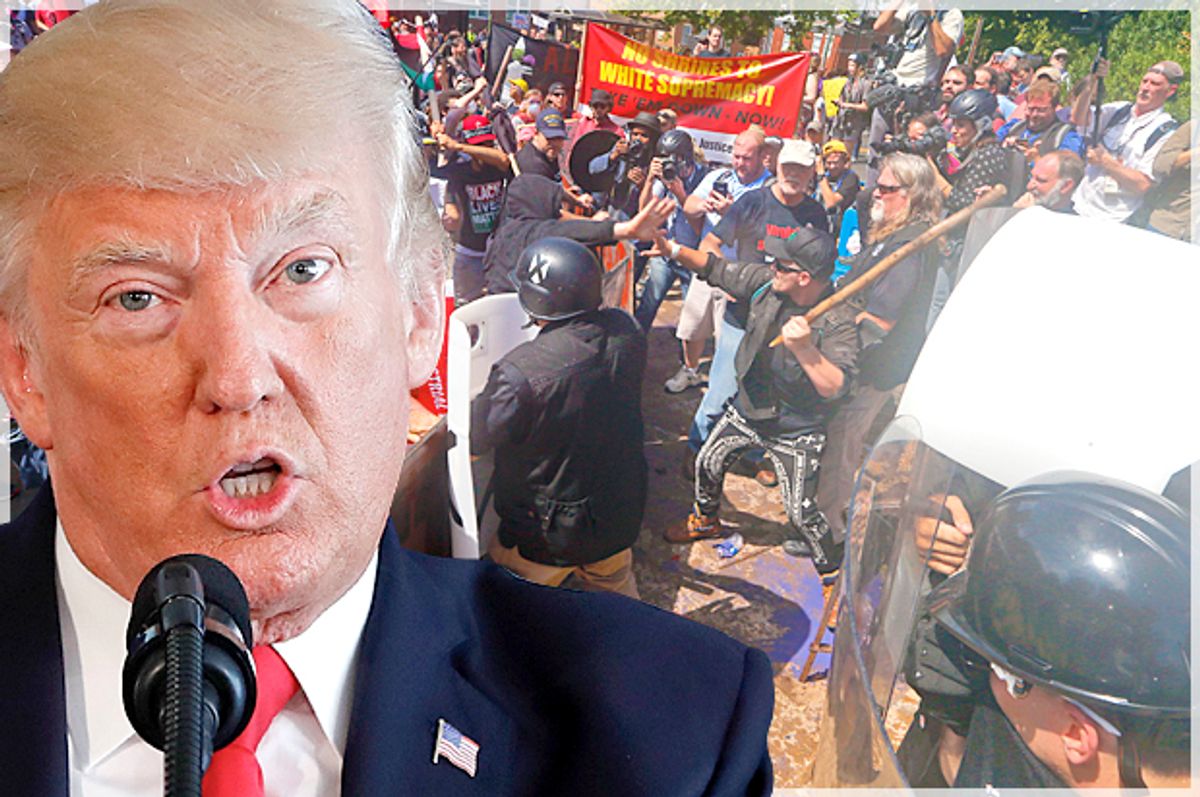President Donald Trump's defense of the white supremacists marching in Charlottesville has dealt him yet another political humiliation. This time the source comes from four rabbinical organizations.
The Central Conference of American Rabbis, The Rabbinical Assembly, the Reconstructionist Rabbinical Association and the Religious Action Center of Reform Judaism have all decided to forego organizing the traditional annual conference call between their organizations and the incumbent president, according to their press statement.
After condemning Trump's reaction to the Charlottesville riots as "lacking in moral leadership and empathy for the victims of racial and religious hatred," the rabbis argued that "the President’s words have given succor to those who advocate anti-Semitism, racism, and xenophobia."
They added, "Responsibility for the violence that occurred in Charlottesville, including the death of Heather Heyer, does not lie with many sides but with one side: the Nazis, alt-right and white supremacists who brought their hate to a peaceful community. They must be roundly condemned at all levels."
In response to this, a Trump official told the Jewish publication The Forward that they never planned on continuing with the phone call anyway, as it had been a tradition initiated by Trump's predecessor, President Barack Obama.
"The Trump Administration looks forward to creating its own traditions to observe the High Holidays and other important days in the Jewish faith," the White House spokesperson told The Forward.
From a strictly political perspective, the poor reception of Trump's remarks among Jewish organizations was not surprising. During the 2016 presidential election he received a much lower percentage of the Jewish vote (24 percent) than Mitt Romney had in 2012 (30 percent), as well as a lower percentage than that received by other minority groups including Hispanics (29 percent) and Asians (29 percent), although he did receive a higher percentage of the Jewish vote than he did among Muslims (13 percent) and African-Americans (8 percent).



Shares